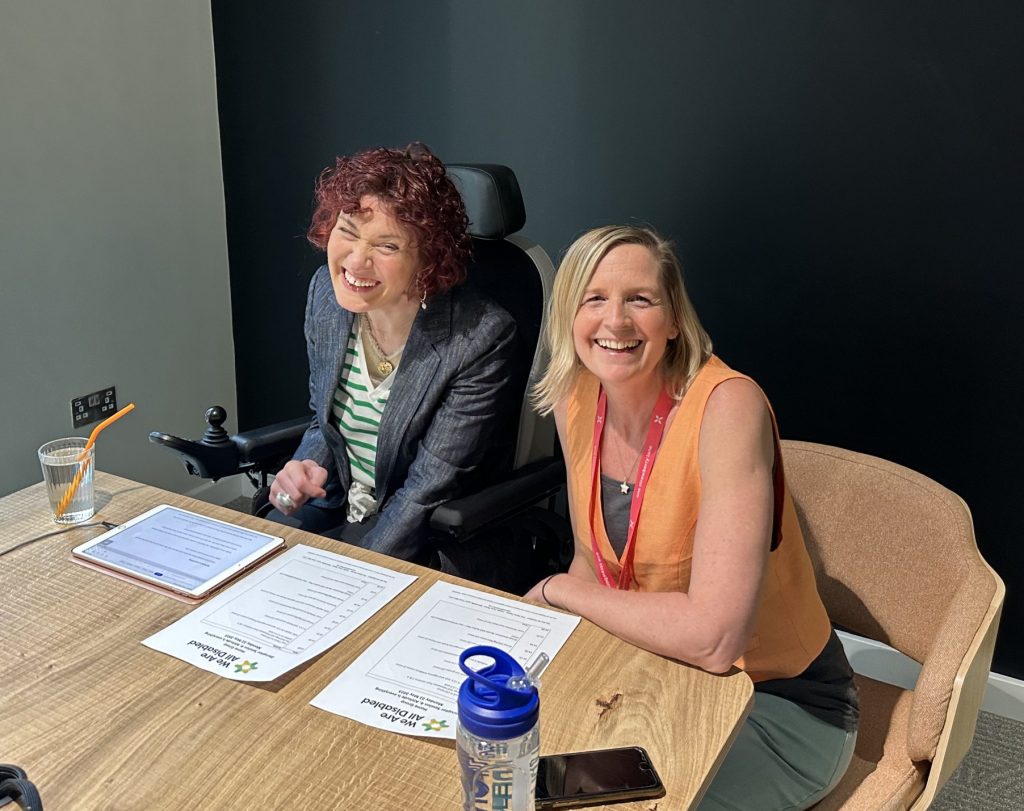I think we are all somewhat aware of the ongoing shortages in social care over the past year. More often than not we hear on the news about the drastic lack of staff in care homes and agencies.
But what about the thousands of people like me who employ Personal Assistants? Our voices are not heard enough about the challenges of being a direct employer and the responsibilities and complexities that brings.
In this blog, I want to dig deeper to give you more of an understanding of the reality of employing Personal Assistants, particularly during the current care crisis.
Between 2016 and 2020, the number of people requesting social care support increased by 120,000 but about 14,000 fewer people received it, according to the King’s Fund think tank.
Recent government figures shows that more than 40,000 social care staff left the sector in the last six months of 2021. However, analysis by the Nuffield Trust claims the more likely fall over this period is an estimated 50,000-70,000 staff due to not all providers submitting data – which would equate to the workforce shrinking between 3% and 4%.
It says homecare providers could have been acutely affected, with a loss of almost 11,000 staff over the same period and estimates that 35,000 could leave in the run up to April meaning that 110,000 people could lose out on home care.
These figures are shocking and have a direct impact on me and all the other people who rely on support in our own homes.
For those of you who read my blog, you’ll know that I employ Personal Assistants 24 hours a day, seven days a week in order to live independently. Although this provides me with fantastic support and I wouldn’t change it, it does bring frustrations and complexities that on the surface you probably would not recognise when you see me going about my daily life.
At the moment I am not fully staffed because I have a vacancy for a PA that I am struggling to fill. This causes a huge amount of stress and frustration as I have to be mindful about organising my weeks around what I want and need to do. For example, attending work meetings, socialising with friends or even just going shopping or taking my dogs for a walk.
I manage my PA’s myself and as their manager I have to train them and provide guidance and support which can entail a lot of effort. In this blog I explained the relationship I have with my PA’s and my expectations of them.
However the complexities go further. Like any employer I have the challenge of managing a variety of people with different personalities and different skill sets. We all have our strengths and weaknesses and it’s imperative that I develop effective working relationships with my PA’s.
Although I treat everyone equally and there are some standard tasks that my PA’s assist me with throughout their shifts, I like to work with people’s individual strengths and interests to ensure that we both get maximum benefit from working together. It’s human nature that we may be good at one thing but not so good at another. For example, I have one PA who is really good at filming and editing so I schedule my video blog intros for when she’s on shift. Another shares my love of cooking so I tend to save my attempts at more complex recipes for when she is working.
Over the past year or so it’s been really tricky to find that balance because recruiting PAs has been a nightmare, existing staff are often off sick or having to isolate and I am continuously short staffed. Organising rotas and covering shifts when I don’t have staff continues to be very difficult . I find myself constantly having to juggle things so I don’t have too many gaps. I have to ask my current PA’s to work extra and for the shifts that I’m unable cover I am forced to ask my family or friends to help which I find difficult.
I’m not alone though – I know of so many people who are short staffed at the moment and this problem does not seem to be shifting. I find this incredibly sad and frustrating, but not surprising given the pressure on the social care industry.
My independence means so much to me and I am incredibly grateful to the people who fought for many years for disabled people to have the freedom to live independently. Unfortunately, at the moment it feels like we have taken a step back due to the crisis and many of us are restricted in what we can do because of the shortage of PA’s.
The government has promised social care reform but I’m not convinced their proposals go far enough. It is only by more disabled people having their voices heard and being really listened to that we can effect positive and lasting change.
For now I think it’s important that we have open conversations about perceptions of social care and the challenges of recruitment. We also need to promote and celebrate the diversity of social care and the unique role that Personal Assistants play in disabled people’s lives.
Photo by Morgan Housel on Unsplash









